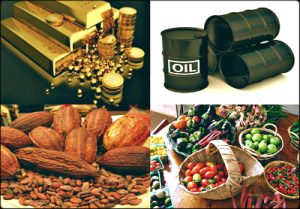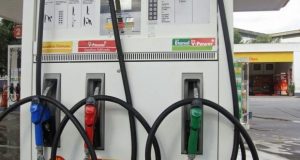Growth in Ghana’s economy has “picked up” since the “sharp contraction in the second quarter”, Bank of Ghana Governor Ernest Addison has said but warned that the second wave of the COVID-19 pandemic in Ghana could erode the gains.
Currently, Ghana has confirmed 5,515 actives cases with 424 deaths.
“All the high-frequency indicators of economic activity have rebounded, consumer and business confidence levels are back at pre-lockdown levels, and there are indications of steady growth in private sector credit. However, the renewed threat from the second-wave of the pandemic has again heightened uncertainty and could hamper the recovery process in the near-term”, he said at a Monetary Policy Committee meeting on Monday, 1 February 2021.
He said the global resurgence of COVID-19 infections has elevated uncertainties in the outlook for this year, posing “significant risks to the pace of recovery in the near-term”.
Global growth prospects, he noted, “remain positive, conditioned on a successful vaccine rollout across various countries, a gradual relaxation of the containment measures, and assured policy support”.
“When well-coordinated, these will help support the much-anticipated global growth rebound in the second half of 2021”, adding: “These conditions will also foster accommodative near-term monetary policies in Advanced Economies, and trigger a search for yield in Emerging Market and Developing Economies with strong fundamentals”.
Dr Addison also said rising debt vulnerabilities in emerging market and frontier economies, including Ghana, on the other hand, pose “significant risks and could potentially worsen investor risk appetite. These conditions will require managing fiscal risks in the outlook for the Ghanaian economy”.
He, however, pointed out that the banking sector is “well-positioned to continue with the core objective of financial intermediation and providing support to the growth recovery process”.
The banks, he noted, are “expected to sustain the strong performance under mild to moderate stress conditions, barring more severe consequences on the real sector from the second wave of the pandemic”.
“Policy and regulatory reliefs granted to the industry will be reviewed alongside close monitoring and prompt supervisory actions will be taken to address emerging potential vulnerabilities in the financial sector arising from the pandemic”.
He said the current account balance “turned out better than earlier anticipated” but pointed out that “lower-than-projected FDI flows and portfolio reversals resulted in a lower build-up of reserves than earlier projected”.
“The gross reserves at US$8.6 billion, translating into 4.1 months of import cover, will provide adequate cushion against potential external vulnerabilities in 2021”.
“The prospects of a sharp fiscal correction in 2021 now looks unlikely amidst the second wave of the pandemic which will be requiring additional spending to provide testing, vaccines, etc. To put debt on a sustainable path and to ensure sustainability in policies, some new revenue measures and expenditure rationalisation efforts will have to be pursued within the context of the medium-term fiscal framework to allow for the generation of primary surpluses”, Dr Addison added.
He said headline inflation, while on “steady decline in the early months of the last quarter of 2020, jumped in December to 10.4 per cent, outside the target band of 8±2 per cent, driven by food prices”
“However, the Bank projects headline inflation to return to target in the second quarter of 2021. Risks to inflation in the near-term are broadly contained, but short to medium-term risks emanating from the fiscal expansion and rising crude oil prices are emerging”.







